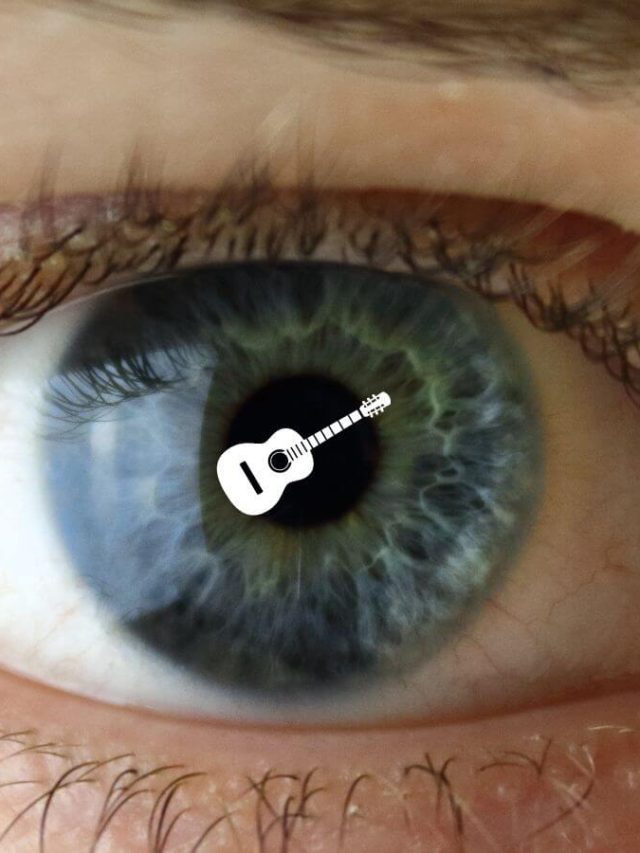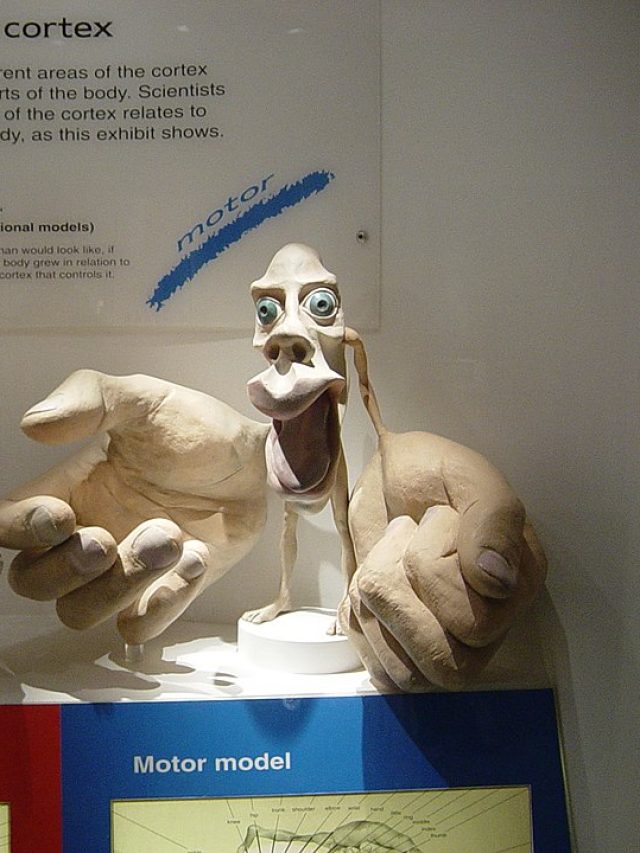Feedback is a necessary component of learning the guitar. It’s a necessary component of all kinds of learning. We’ll look at all types of feedback on technique, appearance, movement, etc., you can extract from recording yourself and playing in front of others.
You might think of feedback in terms of “good playing” or “bad playing” but that really just acts like a reward or punishment – like an encouragement or discouragement. That kind of feedback is only one of the critical components of musical skills, which focuses on improving playing motivation. For the hardcore skills, we need details in the feedback, so I’ll show you where you can get the feedback and what to look for in it. Here’s a visual, compact version of this article.
Chapters
Where: 4 sources of feedback for guitarists
- Record your playing audio: Use a DAW (Digital audio workstation) like Reaper[1] or Cubase[2] to record what you can play (I use reaper). That recording will completely change your impression of how you sound. In real-time, while practicing, a lot of emotions like excitement and a sense of accomplishment (or frustration) affect your self-evaluation. But after recording, there is a psychological distance between you and your music. That distance changes perspectives and highlights what sounds good, what doesn’t, what’s sloppy, what’s tight, etc.
- Perform in front of someone: Nothing tests confidence and accuracy like showing someone what you know. Play in front of others and ask them to tell you what they think. Observe what you do when you are showcasing.
- Video yourself: When it comes to observing your technique, analyzing your picking and fretting, or visualizing what you can play, nothing outdoes a video recording. You can verify your playing or find problems in it by analyzing your video. When something sounds off, you might be able to figure out why if you see yourself playing.
- Ask people for comments (not friends, randos): The internet is often rude, but outsiders can be more honest – because friends generally hype their friends. Friends and family might be less critical of your playing skill and quality. So ask people who have no emotional investment in you – random people and random audiences – ask them how you were playing, how they felt listening, etc. The harsh reality of overall musical ability comes out here.
I personally got a reality check when I started recording with a band – it showed all the sloppy moments and where I lacked. Then I started practicing while recording, and I got a lot more careful. On stage, you get carried away by the feeling, so you don’t see your weak moments too easily.
What: 6 types of feedback to look for
1. How your guitar sits with the background music
When you play, the chord changes, the tempo, the rhythmic structure, etc., will make or break the dullest or the fanciest guitar licks. If they don’t make sense in a context, they will sound bad. You can have the best shreddy run on an electric, but it’ll probably sound bad if the rhythm is too strummy and groovy. It’ll also sound bad if the notes in the run don’t fit the chords. Similarly, a powerful rhythmic build-up might just need one single bend and pentatonic trill to make it sound epic instead of a flurry of notes.
2. How your body moves with the guitar
Your body posture affects 4 central things: Your confidence and look, your comfort in executing skills, your feel, and random dynamics in your playing that emerge from how your body’s parts are moving.
- Confidence: An upright, erect posture is a universal signal of confidence, and a slouched posture isn’t. When playing, your posture will signal your brain and others’ brains about your confidence level.
- Comfort: Certain skills are easier to execute based on how you place your guitar. Sweep picking is typically easy when the guitar is higher up on the body.
- Feel: Your body movement is typically in sync with music. The groove, the flowly gestures, the tight fists, the hand’s angles, etc. For yourself and the listener, the congruence between how you sound and how you move generates an organic feel.
- Random dynamics: vibrato while jumping will sound very different from a vibrato while standing still. A lot of musical “feel” comes from these variations.
3. How your face responds to your playing
Your feelings affect your playing dynamics. It shows confidence, nervousness, etc. Your face also gives other people the emotion to feel while they listen to it. A feely face can make the audience feel the passion. An intense look can make them feel dominated. But, generally, manipulating your expressions changes brain chemistry and signals your nervous system to change its behavior (in very subtle ways). But those changes lead to musical idiosyncrasies like how hard or lightly you pick, how long you sustain your notes, how your vibrato sounds, etc.
4. Technical feedback
Technical feedback is straightforward. It’s about how well you are executing your chops and what you can do to improve. Look for technical feedback from the pros.
Look for technical feedback on all fronts:
- Technique: Compare and contrast how your hand looks based on the pros and how others progress.
- Timing: Understand rhythm and tightness. Look at how you pause between notes and how you fill up the musical space.
- Hand movements: Does your hand look the same every time you play one piece or is it changing? If it is changing, chances are you are still yet to form muscle memory or you are exploring the best way to execute.
- Tone: Do have knowledge about EQ? Are you using the right amount of gain or compression? Are you raw-dogging and failing to sound refined?
- Equipment set up: Are your strings fine? Is your amp set up correctly? Is the bridge and action ok?
Unpopular opinion: A good tone can make an average guitarist sound great, but a truly expert guitarist can make a bad tone sound good.
5. Overall impressions
As a performing musician, you will eventually care a lot about “overall impressions”. These are global judgments people have about you as a musician, you as a guitarist, you as a skilled performer, you as a person. Overall impressions come from how people feel about your music, what they remember, etc. You can get this feedback only by showing your skills to others and incrementally improving how you present yourself. The musical decisions you make – size of the solo, heaviness, key changes, build-up and tension/release moments, tightness, physical appearance, and your guitar set-up itself – will get judged, and those will create an overall impression.
6. How others build upon and respond to what you are playing
Music is collaborative and almost never just 1 instrument at a time.
Consider: Are they restricting themselves because of what you are playing? Can they improvise? Do they have space to do their thing? Good guitar players know when to play or not play, or when to add guitar content and where to tone it down.
Takeaway
Record yourself (audio and video) and play in front of others. Keep your eyes and ears open to find information about technique, appearance, motor movement, and how other musicians respond to you musically.
Check out these other psychological tidbits that will help you as a guitarist 🙂 \m/










